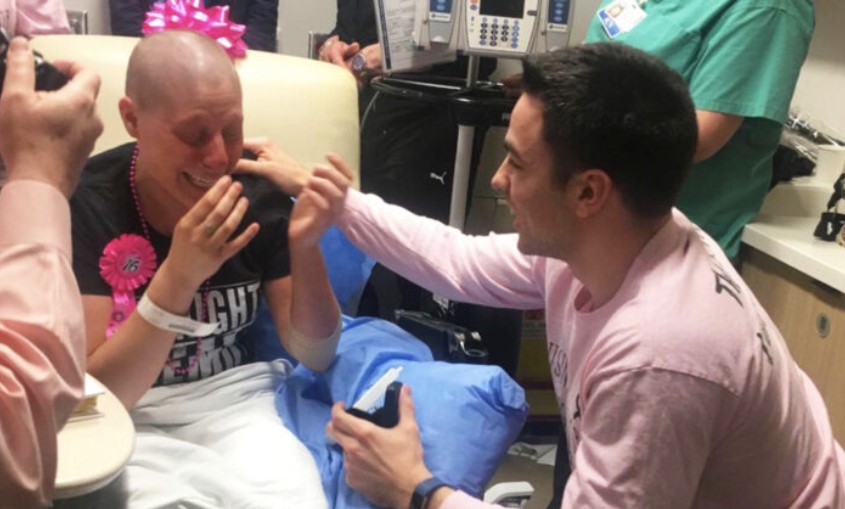For one friendship to begin, you don’t need a lot of effort. But in order to make that friendship last, there are some things you can do so that people around you will like you more.
Imitate others
When you talk to someone, you mimic their gestures, facial expressions, and body language. This method of imitating others’ behavior is called mirroring.
In 1999, some researchers from the New York University called this phenomenon – “chameleon effect” and it refers to the unconscious mimicry of each other’s behavior. They made research with 78 men and 78 women who had the task to work in pairs. They were mimicking each other on a different level, and researchers have videotaped them secretly. In the end, they asked participants to indicate how much they liked their partners.
The results that they have gotten prove this theory that when someone mimics your behavior, you are more likely to like that person.
Spend more time with them
People like the things and people that are more familiar with and this phenomenon is known as the mere-exposure effect. In the 1950s, MIT researchers discovered that those college students who lived close were more likely to be friends than those who lived far from each other.
Students who live near to each other have daily interactions that create opportunities for friendships to happen. There was one research conducted by the psychologists at the University of Pittsburgh where four women were in the role of a student and entered the classes a couple of times.
When the male students were shown pictures of those four women, they showed that they are interested in those women they’ve seen more often in class compared to those who they didn’t see. The interaction between those men and women didn’t play important role in the results.
According to these findings, people tend to like those who are more present around them, even if they don’t engage in communication. Therefore, if you want people to like you, simply be around them or invite them for a coffee sometimes.
Give compliments
Giving compliments will make you look better in front of others because people will associate everything you say about others with your own personality. One study revealed that this phenomenon called spontaneous trait transference happens even when people knew that the traits people used to describe others didn’t relate to their personality.
So, don’t speak negative things about others. Try to find the good in others, and others will find the good in you.
Try to be in a good mood
Did you know that emotions are contagious? People around you will feel your emotions, so try to feel great in order to radiate it everywhere you go.
Meet with your friends’ friends
Students from the University of British Columbia have designed a program to illustrate the effect called triadic closure. They found that people on Facebook accept more friend requests from people they have more mutual friends with.
Balance your compliments
The gain-loss theory suggests that the compliments you share have a bigger influence when you give them occasionally.
A study from 1965 made by the University of Minnesota suggests that students like their partners more when they give them positive but also negative comments.
Display warmth and competence
According to the stereotype content model, if people think you are friendly and warm, which means not a competitive person, they will trust you more. And if you look competent, people will respect you more.
Amy Cuddy, a Harvard psychologist also supports this idea especially in business where it’s important that you first display warmth and then competence.
Don’t be shy to show your flaws
After making a mistake people will like you more, but only if they believe you are a competent person. This phenomenon was first discovered by the researcher Elliot Aronson who proved that when you are not perfect people can relate to you more easily.
Highlight your shared values
The similarity-attraction effect says that people are more inclined to those similar to them. This is proven by one classic study where participants liked their housemates when they had more similar values and attitudes.
Touch others more
Subliminal touching occurs when you touch someone indirectly and so softly that they hardly notice. In an experiment conducted by the University of Mississippi and Rhodes College, the waitresses that touched customers’ hands or shoulders very briefly, got more tips compared to those who didn’t touch customers.
Just smile
Studies show that if you want to be remembered by people you see for the first time, just smile at them.
Perceive others accordingly their own beliefs about themselves
Series of studies from Stanford University shows that people want to be in a closer relationship with those who see them the way they see themselves. That’s because that way, people feel understood which leads to higher levels of intimacy.
Share some of your secrets
Self-disclosure is one of the best strategies for building close relationships. So, don’t be afraid to ask intimate questions about other people’s life. For example, you can ask them about the last movie they’ve watched, or the last trip they took. People usually enjoy talking about their own life, so they will for sure feel closer to you and will initiate future meetings with you.
Have good expectations from others
People treat others the way they expect others to react. That’s why many times you actually cause people to behave in the way you’ve expected. This is called the Pygmalion effect. So, if you want people to become your friends, act friendly with them and they will probably behave in the same manner.
If you like others, they will like you too
When you think someone likes you, then most probably you will like that person too. Psychologists call this phenomenon “reciprocity of liking”.
Use your humor
Research shows that humor is very important for people to like you. On the other side, if you don’t have a sense of humor, it could be bad for you, especially at work.
Let people talk about themselves
Studies show that when people talk about themselves, the brain regions associated with motivation and reward activate the most, regardless of who is listening.
That’s why you should spend more time asking questions about them, then just talking about you. That way, people will have more positive memories of your talk.








